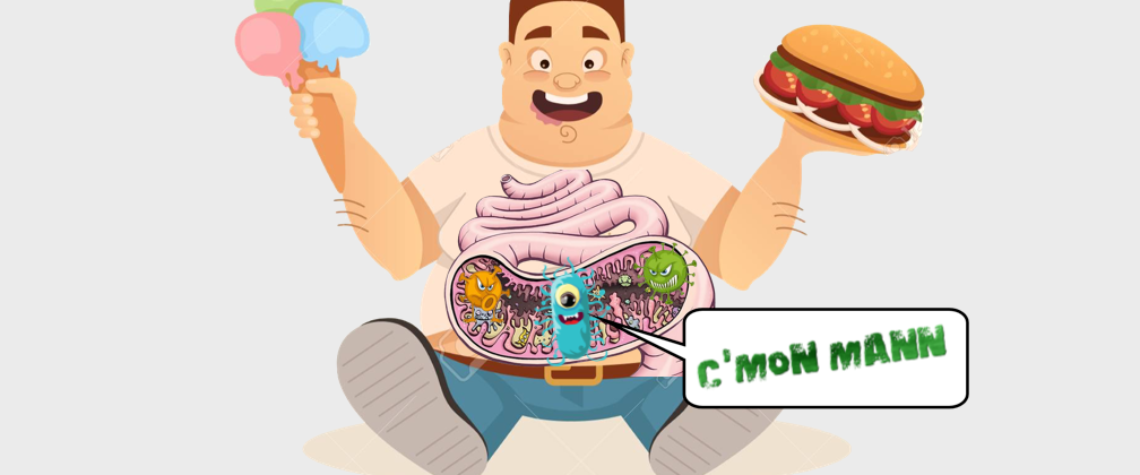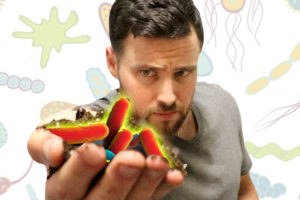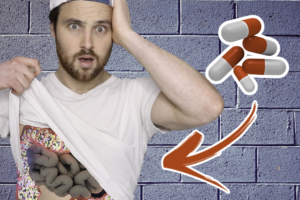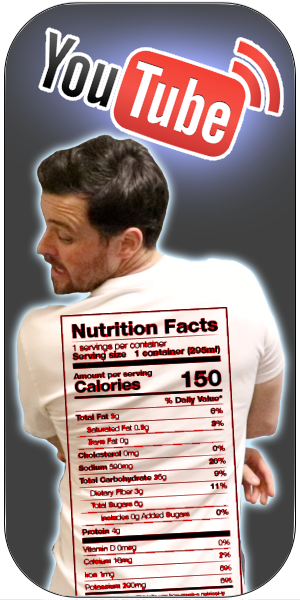Don’t Hate the Bacteria – Hate the Host
Bacteria is here to stay, whether you like it or not. It’s been around long before us and will more than likely be around long after we’re gone….. or on Mars. Up until the last few years the primary question most asked when hearing the term “Bacteria” was “How can I kill it?“. We can thank ignorance and some very savvy cartoon marketing from our friends at the chemical companies for that. Now, all of a sudden the term “Good Bacteria” has become mainstream and the very same bugs we’ve been battling with chemical force, are now being willingly ingested, a trillion (or so) at a time. Soo what gives?
We’re not too Different You & I…
Simply put, bacteria is bacteria. It’s an organism that has a rather straight-forward game-plan, actually it’s quite similar to ours. It’s innate mission is survival, to colonize environments that facilitate a prosperous life, to meet a nice bacterial spouse and move to the bacterial burbs to start a bacterial family, OK, maybe not that last part but you get the point. There are millions of different “known” species of bacteria, a spoonful of dirt has shown to contain up to 10,000 for that matter(1). They all thrive in different environments, some in the soil, others the ocean, or (very) possibly specific hosts themselves. Where ever they stake their flag, their goal is simple, proliferate and prosper.
The “Good” Bugs and the “Bad” Bugs
Labeling, classifying, categorizing and associating is just something we do as humans. It’s a way to keep track of things, whether good, bad, indifferent, it’s natural for our species to formulate an opinion, and share it with the greater population. Over time, we tend to do a good job (we’ll have to see how the “Fake News” era plays out), but it takes a while, because we simply “Don’t Know, what we Don’t Know”. You can argue that modern science is in its infancy and with the rapid evolution of technology, our views and perspectives could probably will be vastly different in fifty years. The views on microbes is a prime example of this. Research on the human Microbiome is relatively new and in the last 30 years it’s shed new light on our relationship with bacteria. Bringing forth the reality that we are a host to trillions of microbes and we have been that since our earliest days. Over the course of our existence we (and other hosts) have evolved with these microbes forming sustained partnerships, of which many times we’re mutually beneficial. As research has associated specific species with benefits such as weight loss, disease prevention, reduced inflammation, and cognitive performance (to name a few), we’ve begin to categorize specific species into “Good” and “Bad” categories.
Enter Probiotics! Simply put, they are fermented foods or supplements that contain active quote unquote “Good Bacteria” as it pertains to humans. The idea is, to consume these “good” microbes in a effort to reap the benefits. But does this practice hold water?
Trillions of organisms in a finite space sets the stage for a “race for real estate” within our intestines. Species of microbes form communities atop our gut wall in hopes to establish themselves and proliferate (remember… their goal is survival). They feed on the (often indigestible) foods as they pass through colon, fermenting and excreting molecules that can alter their hosts health.

For example, take the strain Lactobacillus, studies have shown it can enhance the integrity of the intestinal barrier, which may result in maintenance of immune tolerance, decreased translocation of bacteria across the intestinal mucosa, and disease phenotypes such as gastrointestinal infections, IBS and IBD(2). Research like this provides insights to the possibilities of manipulating our microbiome, but in order to be effective these microbes need to have a seat at the crowded table. And remember(again), these organisms #1 objective is to survive and proliferate, thus there have been several cases where they attempt to push their own agenda, but can we say we’re any better?
The Hype, The Noise, The Truth
Many variable are actively influencing the composition of a hosts microbiome (diet, sleep, exercise, antibiotics, environment, etc.). But there’s no denying that these bugs can impact our health, from a business perspective I’d classify them as mission critical partners. Although probiotics are “Hot” in the health world right now, the perception that a supplement alone will cause significant change is a tad far-fetched. In fact, recent trials have associated probiotic use to SIBO (Small Intestine, Bacterial Overgrowth), Brain fogginess, gas and bloating(3).
In a newly released statement addressing the growing interest in probiotics FDA Chief Scott Gottlieb had this to say:
“We need to make sure that the products are delivering benefits that justify any potential risks. This is especially important as these products are being used in vulnerable patients. We will consider taking action when we see unsafe or violative products.”
He went on:
“The FDA has also not approved any probiotic as a live biotherapeutic product (LBP), a biological product other than a vaccine that contains live organisms used to prevent or treat a disease or condition in humans.”
There’s certainly a benefit to having a microbiome abundant with beneficial bacteria, but taking an oral supplement may not be the best way to achieve this outcome. In order to be effective, these “beneficial” bacteria need to take hold of some real estate in your gut, and as pointed out before, it’s pretty darn crowded in there. Unless your supplementing to rebuild communities after a dose of antibiotics (which often wipes out your gut bugs), the majority of the probiotics you ingest will fail to take hold of sufficient real estate and pass right through (and out of) your digestive track. To truly reap the benefits and promote beneficial microbe communities, interventions such as diet are your best bet. By consuming high-fiber plant-based foods, and limiting the high sugar/processed junk, you’ll create an environment for those “good” gut bugs to thrive.
Every choice you make, directly or indirectly, affects and influences the trillions of microorganisms that call YOU home. You decide whether you nurture or neglect this partnership, whether you reap or regret each interaction, and whether you put your body in a position to preform to its optimal ability or continue to Just Get By. You don’t need probiotics to be healthy, you can re-invent your microbiome without them, they’re just another tool in the toolbox. The simple truth is, like always, we need more information, more research, and more clinical trials, all culminating with a way to personalize treatments at scale.
In the meantime, Eat ya Veggies…








